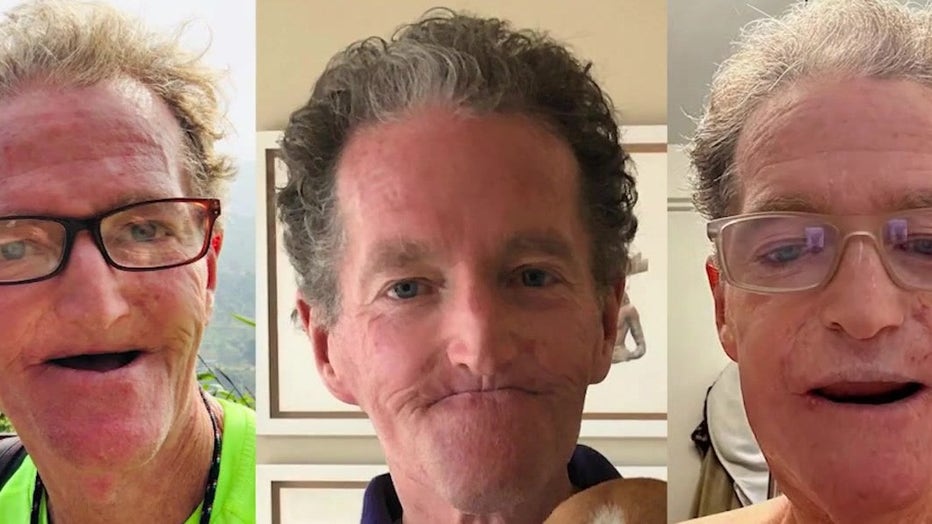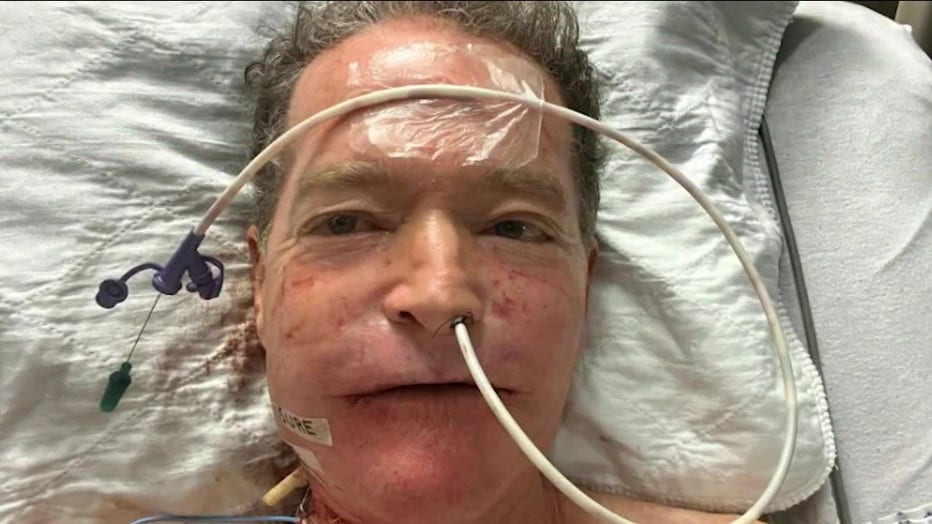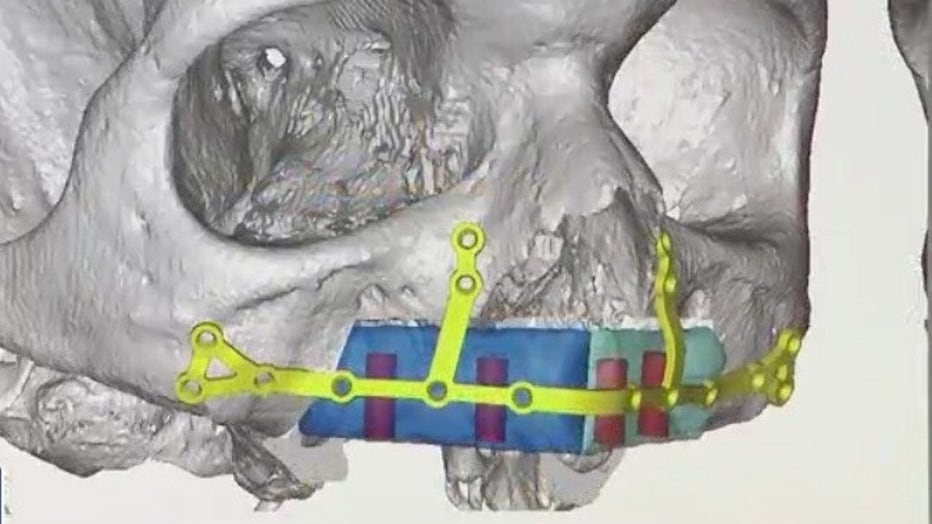9/11 survivor gets groundbreaking surgery after battling cancer, losing teeth

Survivor of 9/11 cancer gets jaw reconstruction
A man whose upper jaw and teeth disintegrated after aggressive treatment to cure a 9/11 related skin cancer finally has his skin and smile back. FOX 5 NY's Linda Schmidt has the story.
NEW YORK - September 11, 2001, marked the deadliest terror attack on U.S. soil.
On that day, 23 years ago, many American lives were lost, and some were changed forever because of the tragedy.
9/11 changed Edmund Mehring's life in ways he never could have imagined.
He worked in the financial district during the attack. "The second plane came banking past our window… Everyone watched it go right into the building," he says.
The Twin Towers collapsed before him, creating a massive plume of toxic smoke.
"I ran down toward the East River and very quickly got engulfed in the white smoke."
Fifteen years later, at the age of 62, Mehring noticed that he had a chronic bloody nose that wouldn't go away.
He was then diagnosed with a 9/11-related skin cancer in his mouth (oral melanoma).

He had stage 4, Squamous cell carcinoma (SCC).
Mehring immediately underwent seven weeks of strenuous chemotherapy and radiation.
"The radiation killed the cancer, but I also lost all my teeth and I lost most of the front of my jaw," Mehring says.

Most of his upper jaw bone and all of his teeth disintegrated, causing his face to cave in. He spent the next seven years searching for experts who could help.
For seven years, he could not eat solid food other than soft food like mashed potatoes.
"I went from 175 pounds, an athletic 175 pounds to 130 pounds."

Doctors David Hirsch and Brett Miles of Lenox Hill Hospital Northwell Health decided to perform a groundbreaking procedure that they pioneered.
They used Mehring's fibula bone from his right leg to reconstruct his jaw.
The surgery took nearly eight hours.
Doctor David Hirsch, MD, is the co-director of the hospital’s Advanced Head and Neck Reconstruction Program.
"We took the fibula bone, placed dental implants into that bone and then took that bone and put it in the mouth to replace the upper jaw," he explains.
Mehring says they grafted it, shaped and grafted it into the shape of the front of his jaw.
Doctor Brett Miles, MD, is also a co-director of the hospital’s Advanced Head and Neck Reconstruction Program.
"He's able to eat whatever he wants at this point. It's a gamechanger for him," Dr. Miles says.
Mehring, who is now 70 years old, says that without them, his life would've been very different.
"This is your life. So, don't give up on a solution if you have a problem."

